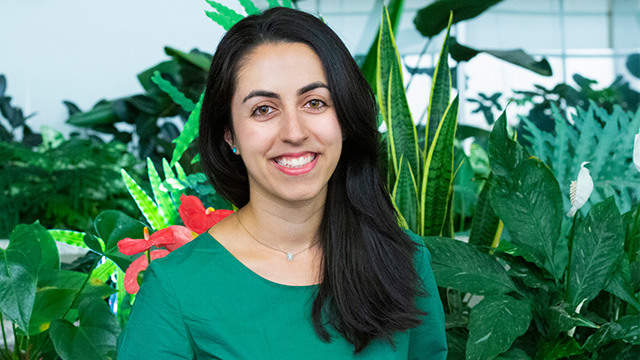
For Fatemeh Ramazani, the most meaningful work of a doctor is in service to patients and their families during the challenging times they face.
What advice would you give to new students?
With all of the moving parts, it can be easy to get caught up in life and school. Take note of the moments that remind you of the humbling experience that is the practice of medicine and the service of others. Those moments helped to ground me and to overcome some of the more challenging experiences over the course of the past few years.
What was your favourite class during your program?
Internal medicine was one of my final rotations in third year, and probably the most rewarding.
It was also the rotation where I had the most meaningful experiences with patients and families. Every day was a reminder of the greatest privilege that's part and parcel to becoming a physician: the ability to witness and share in people's stories in a way that is truly difficult to reproduce in any other field.
How did you engage with student life on campus?
I was the Medical Students' Association (MSA) President during my second year of medical
school. In that role, I was chair to an executive committee and a larger general council. I was able to advocate for my peers on topics ranging from program or curriculum feedback to student wellness. For me there was a tremendous amount of professional and personal growth.
I'm also part of an all-girl band called "The Raging Hormones" with six of my musically-inclined (and extremely talented) classmates. Having won the inter-class Battle of the Bands competition for the second year in a row, I'd say we're quite a hit.
What was your most memorable UAlberta experience?
I attended the Hurtig Lecture on the Future of Canada in my second year of medical school,
which featured Mayors Don Iveson (Edmonton) and Naheed Nenshi (Calgary) as guest speakers on how engaged local citizenship forms the backbone of large-scale national and global prosperity. It left a lasting impression on me; a shift from seeking out large-scale and organizational leadership positions to advocating for my peers and my patients and becoming more engaged in my local community.
Who was your mentor or favourite professor?
I'm very fortunate to have had several phenomenal mentors that make this a difficult
Question to answer. However, the one person who has been my mentor since first year is Dr. Mel Lewis from the Office of Advocacy and Wellness. Beyond being a phenomenal female role model in medicine, Dr. Lewis is one of the biggest advocates for students and student wellness. I was fortunate to have many opportunities to work with her as MSA president, and more informally as a mentor. Dr. Lewis's dedication to the well-being of her patients and the student body is inspiring, and the kind of genuine passion I think we all look for in a career.
What's next for you?
I will be starting Residency in Otolaryngology-Head and Neck Surgery-here at UAlberta, on July 1. I'm thrilled to be joining a world-class surgical training program and an
extraordinary team of residents and staff, some of whom have become good friends and
mentors. I hope to stay involved in leadership and research and to start putting my medical knowledge to use through greater involvement with global health.